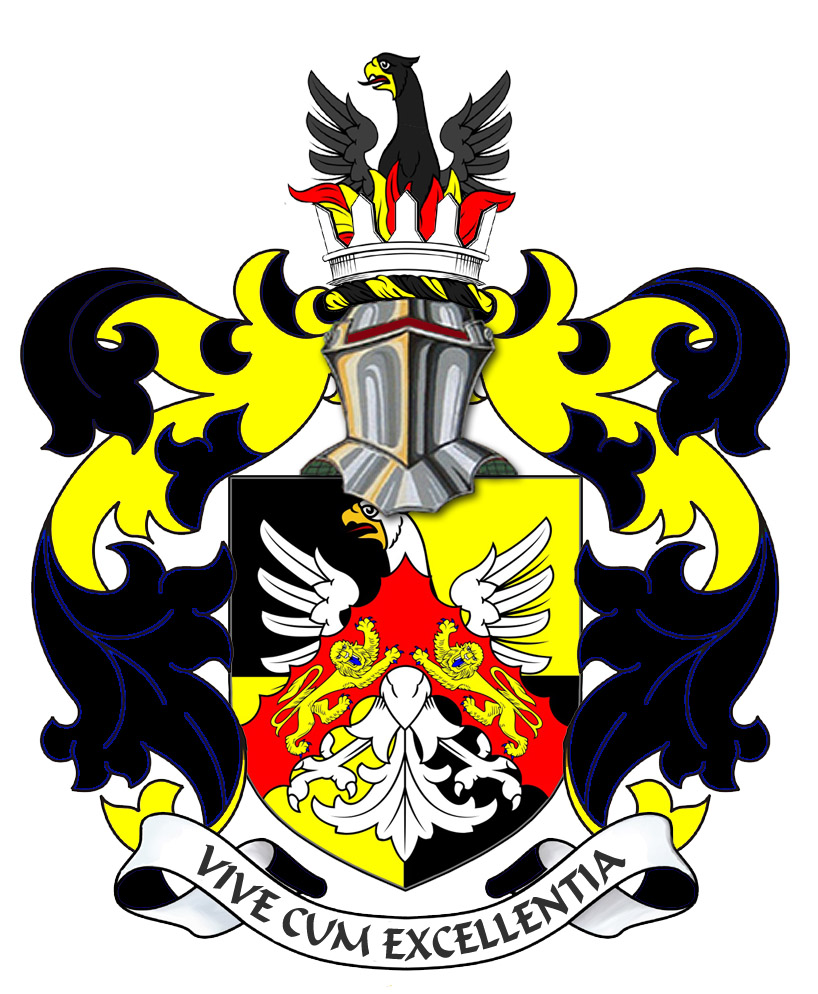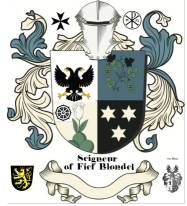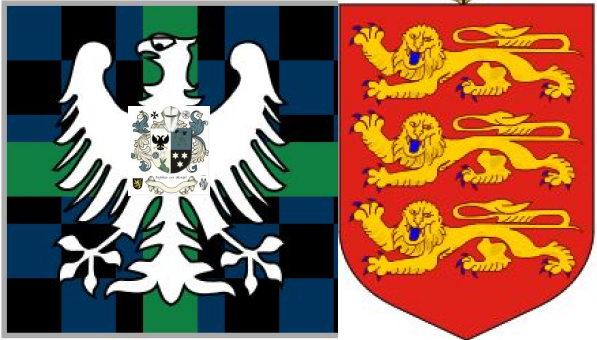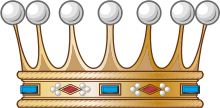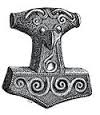


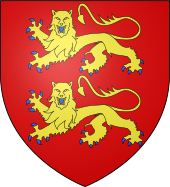
The Liberty and Bailiwick of Ennerdale as a Private Palatine Jurisdiction with Regalian Rights TO WHOM IT MAY CONCERN: This document serves as a formal legal-historical declaration regarding the unique status of the Liberty and Bailiwick of Ennerdale, a territorial and judicial entity situated within the historical Forest of Copeland, in the County of Cumberland (now Cumbria), England. I. BACKGROUND AND ACQUISITIONThe Liberty and Bailiwick of Ennerdale originated as Crown property, part of the ancient Forest of Copeland, administered under royal forest law. In a rare and possibly unique transaction, the Crown sold the Ennerdale estate outright to the Earl of Lonsdale, thereby conveying:
This sale constituted a complete alienation of the territory and its jurisdictions from the Crown, without feudal reservation or leasehold status. II. PALATINE CHARACTERISTICS AND REGALIAN RIGHTSThe structure and rights conveyed to the Earl, and now to his successors in title, fulfill the historical and legal conditions of a County Palatine or Palatine Liberty. A. Judicial IndependenceThe Court Leet and Court Baron granted to Ennerdale are direct franchises of royal justice, previously exercised only by the monarch or his sheriffs. These courts empowered the Lord to:
B. Administrative AutonomyThe designation as a Bailiwick enables the Lord to appoint a High Bailiff, Forest Ranger, Steward, or other ceremonial officers to exercise internal governance over the territory. The Liberty status exempts Ennerdale from the jurisdiction of external sheriffs and justiciars — a hallmark of palatine governance. C. Proprietary SovereigntyAs the fee simple owner of both the land and regalian rights, the Lord of Ennerdale holds a unique position. Unlike ecclesiastical or temporary palatinates, the Ennerdale jurisdiction is fully alienated, creating a private sub-sovereign legal enclave recognized under historical English law. III. UNIQUE STATUSUpon examination of surviving records, no other known manor or liberty in England appears to have been:
This makes the Liberty and Bailiwick of Ennerdale a uniquely preserved palatine estate, possibly the only private liberty in England retaining historical regalian rights originally delegated by the Crown. IV. CONCLUSIONWe therefore assert and declare that the Liberty and Bailiwick of Ennerdale, with its:
constitutes a private palatine jurisdiction under historical English law, with continuing entitlement to exercise ceremonial and limited legal appointments, privileges, and dignities derived from the Crown's original regalian powers.
Historical Report on the Suzerainty-Free Status of the Liberty and Bailiwick of Ennerdale Prepared for Scholarly and Archival Purposes 1. Executive Summary The Liberty and Bailiwick of Ennerdale represents an exceptionally rare, and possibly unique, case of a jurisdiction that has been fully alienated from the suzerainty of the British Crown. Unlike Crown dependencies or symbolic manorial titles, the documented sale of Ennerdale's liberty, court leet, and associated regalian rights in fee simple distinguishes it as a privately held autonomous jurisdiction, devoid of residual royal authority. This paper contends that Ennerdale may be the only suzerainty-free liberty and bailiwick in the world held in private hands. 2. Legal Definition of Suzerainty Suzerainty refers to a form of overlordship wherein a sovereign retains ultimate authority over a subordinate or vassal state or jurisdiction. In British legal history, suzerainty was preserved in most grants of manors, liberties, or territories through conditions, reversion clauses, or feudal obligations. True suzerainty-free status requires the complete and unconditional alienation of all rights, including courts, land, and incidentals, without reservation to the Crown. 3. Ennerdale's Historical Sale and Alienation Historical records suggest that the Liberty and Bailiwick of Ennerdale was sold outright by the British Crown to the Earl of Lonsdale, possibly during the 18th or 19th century, including:
Such a sale, if fully executed without condition, extinguished all residual royal authority—thus erasing any remaining feudal or suzerain bond. 4. Comparison with Other Jurisdictions All other known liberties or bailiwicks either remain under symbolic or real Crown suzerainty:
None of these jurisdictions possess the documented combination of private ownership, court authority, liberty status, and extinguished Crown suzerainty that Ennerdale does. 5. Legal and Symbolic Implications The holder of Ennerdale's title, by virtue of its history and substance, possesses the right to:
Ennerdale thus preserves a micro-jurisdiction with autonomy inherited through legal alienation, rather than decolonization or delegation. 6. Conclusion The Liberty and Bailiwick of Ennerdale stands alone in modern jurisprudence as a privately held, suzerainty-free jurisdiction. It holds immense historical, legal, and cultural value as a surviving fragment of England's feudal and constitutional evolution. Its status may warrant preservation, recognition, and scholarly attention as a living jurisdictional relic. Prepared by: [Your Name / Commission / Institution] Date: [Insert Date] |
Nobility Titles and Feudal Titles of Barons Lords and Seigneurs Counts Earls Freiherren and Jarls Seigneur de la Fief of Blondel Lord Baron Mentz of Fief Blondel Geurnsey Crown Dependency > Bailiwick of Ennerdale Feudal Barons The Seigneur A Funny Think Happened On the Way to the Fief Viking Kingdom Fief Worship Fiefs of the Islands Fief de l'Eperon Bouvée Phlipot Pain Bouvée Torquetil Bouvée Bourgeon Channel Island History Feif Court Styles and Dignities Court of Chief Pleas Arms Motto Flower Guernsey Bailiwick of Guernsey - Crown Dependency Papal Bull Blondel and King Richard Press Carnival Store Fief Rights Portelet Beach Roquaine Bay Neustrasia Columbier Dovecote Fief Blondel Merchandise Fief Blondel Beaches Islands Foreshore Events Fiefs For Sale Sold Fief Coin Viscounts de Contentin Fief Blondel Map Feudal Guernsey Titles The Feudal System Flag & Arms Fief Videos Guernsey Bailiwick of Ennerdale Castle Advowson Site Map Disclaimer Livres de perchage Lord Baron Longford Dictionary
Feudal Lord of the Fief Blondel of the Nordic Channel Islands Guernsey Est.
1179
Feudalherr - Fief Blondel von der Nordischen Insel Guernsey Est. 1179
New York Gazette - Magazine of Wall Street -
George Mentz -
George Mentz - Aspen Commission
Counselor George Mentz Esq. - Seigneur Feif BlondelBaron Annaly Baron Moyashel Grants to Delvin About Longford Styles and Dignities The Seigneur Court Barons Fiefs of the Islands Longford Map The Island Lords Market & Fair Fief Worship Channel Island History Fief Blondel Lord Baron Longford Fief Rights Fief Blondel Merchandise Events Blondel and King Richard Fief Coin Feudal Guernsey Titles The Feudal System Flag & Arms Castle Site Map Disclaimer Blondel Myth DictionaryCOLORADO SPRINGS MARDI GRAS |
